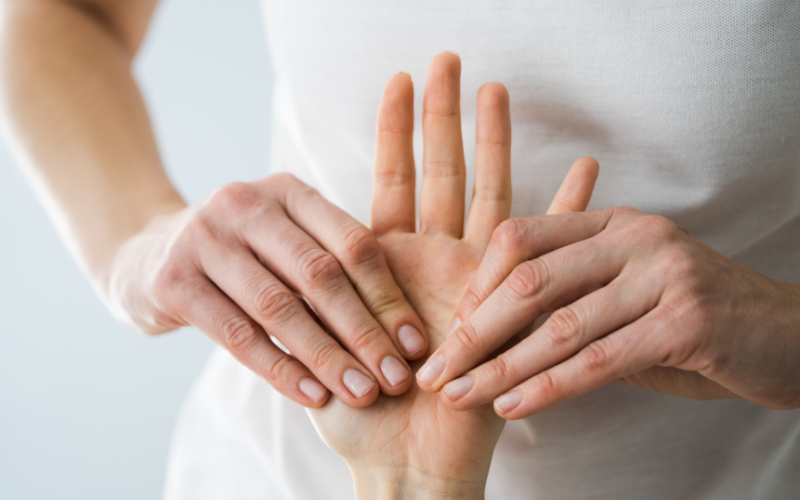Traumatic brain injuries are known to cause various debilitating effects on the body that can impair its function. A TBI damages the nerve cells in the brain, disrupting neural pathways that serve as communication lines to and from the body.
As a result, patients tend to experience mild to severe impairment in physical abilities, such as mobility, muscle strength, coordination, balance, and muscle control. Severe effects and complications may also manifest in the form of a stroke, paralysis, or seizures.
There are also less common effects of a TBI that are often overlooked but still equally debilitating. One example is its physical consequences on the upper limbs, such as the arms, hands, and fingers.
Below is a review of the different hand conditions caused by TBI and ways how to treat and rehabilitate these conditions.
A brain injury disrupts or alters the brain’s normal function and can affect the cerebellum or the regions of the brain that control movement and motor activity. Once the motor cortex is damaged, it can cause a domino effect that can impair control of voluntary movements, such as in the hands and fingers.
TBI patients may experience different types of hand conditions with differing severity, duration, and onset. Unfortunately, hand functions such as fine motor skills require an ample amount of time before they get better since the hand is composed of smaller and more intricate muscle structures.
Here are some of the most common hand conditions associated with traumatic brain injury.
Uncontrolled muscle movements are one of the most common physical effects of a brain injury. Now that it is injured, the neural communications between the brain and muscles become unregulated, causing muscle weakness in different body parts, such as the feet, legs, arms, and hands.
In fact, studies suggest that there is muscle and motor weakness in about 56% of patients following their TBI. This then causes tremendous problems in recovering TBI patients, especially in their ability to perform activities of daily living, such as bathing, grooming, and dressing.
Another common effect of TBI is the loss or alteration in the five senses, specifically the sense of touch. Patients often experience a reduced or complete loss of sensation or sensory overload. This happens due to the brain’s inability to process stimulus normally, thus either making the patient hypersensitive or unsusceptible to sensations.
Spasticity is a common neurologic symptom that occurs following a traumatic brain injury. It is characterized by an abnormal increase in muscle tone, causing the hand muscles to stiffen or contract all at once as the patient tries to move, stretch, or rest them.
It has varying degrees of severity一from mild feelings of muscle tightness to severe hand clenching that can lead to contractures.
Survivors of TBI can also suffer from muscular paralysis in the different parts of the body, such as the hands. When a patient with spasticity also has hand paralysis, then their condition is known as spastic hand paralysis. Patients affected with such a condition experience hand and finger stiffness, tightness, and loss of movement.
Unlike spastic paralysis, patients with flaccid paralysis have reduced muscle tone or severe muscle weakness due to paralysis. This indicates severe nerve dysfunction or the inability of nerve impulses to reach their target muscle organ, thus impairing both voluntary and involuntary muscle control.
Patients with flaccid paralysis not only experience it in the hands but also the facial muscles and respiratory muscles.
With the above-mentioned hand-related conditions, it is common for TBI patients to encounter fine motor coordination problems or dexterity issues. They would have a hard time performing precise and controlled movements with their hands, thus failing to do meaningful tasks and activities.
Hand conditions caused by a traumatic brain injury can significantly impair one’s quality of life. Fortunately, these upper limb disorders may be managed and gradually reversed through rehabilitation and therapeutic exercises.
Patients can work with a physical and occupational therapist to improve hand function and learn how to adapt to their current abilities and limitations. Each session will be spent re-learning functional tasks and maximizing one’s independence.
Some examples of exercises and activities that patients might encounter during their hand rehabilitation therapy include the following:

Our exceptionally trained healthcare professionals at NeuLife are experts in performing rehabilitative exercises for patients with TBI. We provide 24/7 inpatient residential programs to individuals with varying neurological conditions.
Our programs are customized to meet the needs of each patient. Our care plans are structured so that our patients reach their highest level of individual functioning and independence. The ultimate goal is community reintegration which is accomplished through the work of our clinical experts and our experience in treating a wide range of TBI patients.
Contact us now to learn more about our traumatic brain injury rehabilitation and post acute rehab.
The material contained on this site is for informational purposes only and DOES NOT CONSTITUTE THE PROVIDING OF MEDICAL ADVICE, and is not intended to be a substitute for independent professional medical judgment, advice, diagnosis, or treatment. Always seek the advice of your physician or other qualified healthcare providers with any questions or concerns you may have regarding your health.

We know that choosing the next step in your recovery from a catastrophic illness or injury is complex. Together, we can help you take the next step.
Contact us with any questions today.